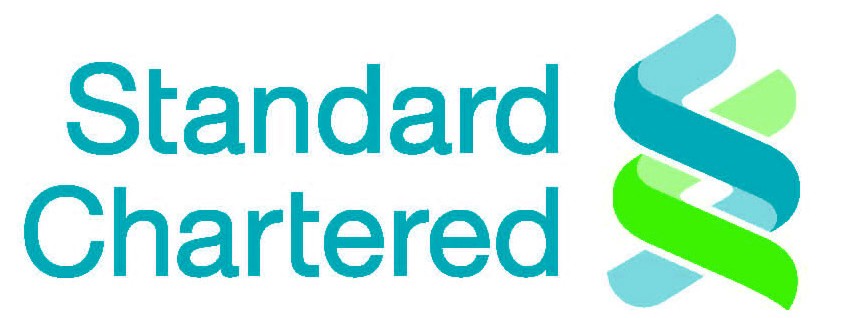EMTA Special Seminar: Outlook for Turkey in an Unstable Geopolitical World (London) - Feb. 6
Sponsored by
1 Basinghall Avenue
London
Topics will include:
- Is the Central Bank doing enough to rein in inflation?
- Has policy response been adequate?
- With Turkish consumer confidence rising, and performance of risk assets, have we seen the worst?
- Can investors count on Turkey’s domestic institutions to provide an anchor?
- What does Operation Olive Branch mean for Turkish-US relations?
- Or will Turkey strengthen EU ties, and can the EU anchor again be a source of support?
3:30 p.m. Registration
4:00 p.m. Panel Discussion
Kaushik Rudra (Standard Chartered) – Moderator
Tim Ash
(BlueBay Asset Management)
Olgay Buyukkayali (Goldman Sachs)
Inan Demir
(Nomura)
Lupin Rahman (PIMCO)
5:00 p.m. Cocktail Reception
Additional Support Provided by Goldman Sachs, MarketAxess and Nomura.
Registration fee for EMTA Members: US$50 / US$695 for Non-members.
We regret that this event is not open to members of the press.
Turkish Monetary Policy, Geopolitical Tensions and Long-Term Opportunities Discussed at EMTA Seminar
Speakers at EMTA’s Special Seminar on Tukey discussed the country’s inflation and rising tensions with the West, while also acknowledging the long-term opportunities offered by the country. The event was sponsored by Standard Chartered on Tuesday, February 6, 2018 in London. Goldman Sachs, Nomura and MarketAxess provided additional support for the event.
Kaushik Rudra (Standard Chartered) moderated the panel, opening the session by polling speakers whether Turkey had reached a bottom, following the former “market darling’s” fall from grace. Inan Demir (Nomura) replied that the country hadn’t performed too badly on an economic scale, although inflation and the current account deficit remained causes for concern. Domestic demand would need to be curtailed, thus opening up the possibility of weaker economic performance. PIMCO’s Lupin Rahman concurred that downside risk remained, with scant chance of inflation, or the current account balance, being addressed prior to the 2019 elections. “If the global background is supportive, Turkey can do ok; but if there are big headlines, it could be vulnerable,” she concluded. Olgay Buyukkayali of Goldman Sachs referred to wider spreads on Turkish debt after its loss of its last investment grade rating in 2016, and stated that “the credit has sold off since then and did screen undervalued in 1Q2017, currently valuations do not have big signals either way.”
Rudra pressed speakers to assess the Central Bank’s policy responses to inflation. Tim Ash (BlueBay Asset Management) pointed out that 2017 growth was above expectations, and highlighted the resilience of the Turkish economy and “some” credible policy actions. “But I think monetary policy has failed for 5-6 years…and I think Turkish growth could have be even better if there was a credible monetary policy.” He referred to widespread skepticism of the Central Bank’s independence, suggested it was a “political tool,” and added that, “until it gets serious about fighting inflation, the Turkish economy will remain vulnerable.”
Demir concurred. “The Central Bank has had opportunities to keep rates high….but they always move to cut rates when they can, and will likely use any opportunity to cut rates again.” He added that, “the market is so jaded that it jumps when the Central Bank says it won’t cut rates.” Rahman noted that portfolio managers should accept the reality of an opportunistic Central Bank that was under political pressure to keep rates low. “We know that inflation is not the target, it follows a growth-focused regime.”
Rudra introduced geopolitics into the discussion. Rahman commented that Operation Olive Branch, the Turkish incursion into the Afrin region of Syria, had introduced additional negative headline risk, and had worsened US- Turkish relations. She didn’t expect any resolution in the medium-term. Ash believed that the US’s response to the attempted coup in Ankara in 2016 had led many Turks to conclude that it had been sponsored by the US; the combination of Operation Olive Branch, the refusal of the US to extradite Fethullah Gulen, and the attack by Turkish forces on the protesters in Washington DC created multiple areas of difficulty and “zero level of trust…Turkey has no friends in DC.” He added that the purchase by Turkey, a NATO state, of Russian weapons only added to tensions.
Demir opined that the Erdogan government had taken action in Syria with the knowledge that it could lead to a deterioration in relations with the US, and that headline risk remained. One could not rule out that that the purchase of Russian antimissile devices could even lead to sanctions.
Panelists disagreed on EU-Turkish relations. Buyukkayali believed that the strong trade and FDI flows between the EU and Turkey would support economic relations. Ash highlighted that the possibility of Turkish accession into the trading bloc had effectively ended in 2010, and that Ankara prefers stronger economic relations than the “privileged partnership” that has been proposed as a replacement. Links with at least the UK were improving, and in general Turkey and the EU needed a strong economic relationship.
Speculation on a Turkish NATO exit was debated. Rahman deemed it unlikely, judging NATO membership an important anchor. Demir believed that, “in some ways Turkey has already left…never before has the leader of a NATO country accused another NATO leader of trying to topple him.” Ultimately, however, despite occasional brinkmanship, Turkey won’t be the party that breaks things off.” Ash described current tensions as unsustainable, and that President Erdogan, who Ash believed pragmatic, might reach out to the US following the Turkish election.
The panel concluded with speaker thoughts on what “magic wand” would best serve the Turkish economy. A more transparent and orthodox Central Bank was cited by Rahman, while Buyukkayali suggested improved domestic savings would greatly improve the economy.